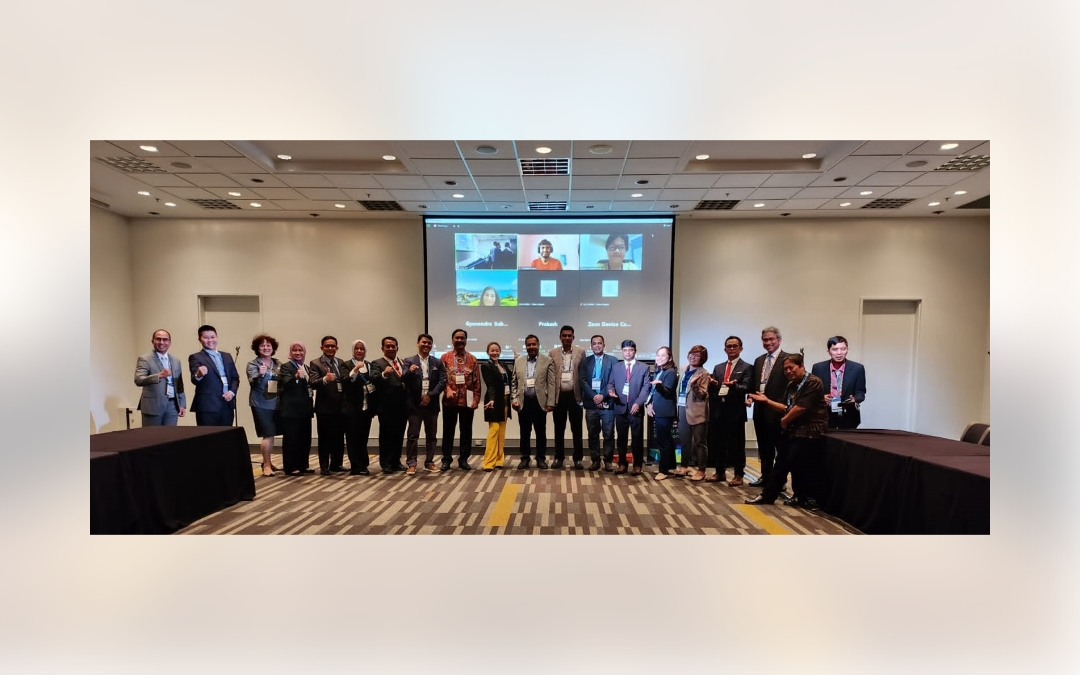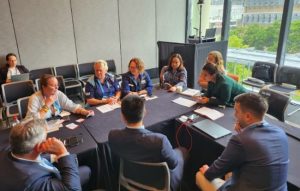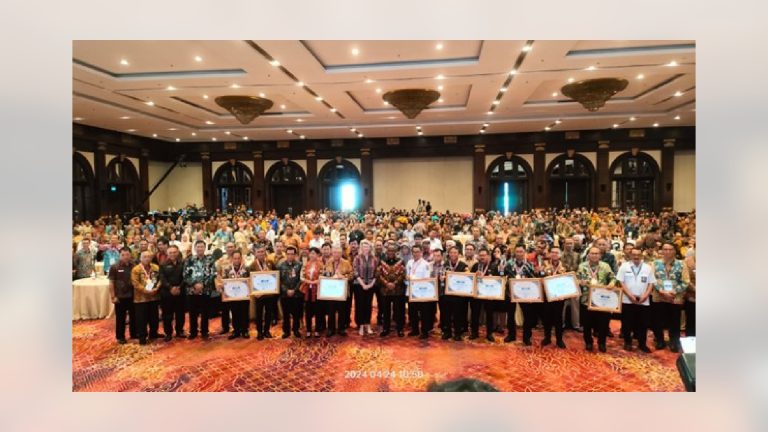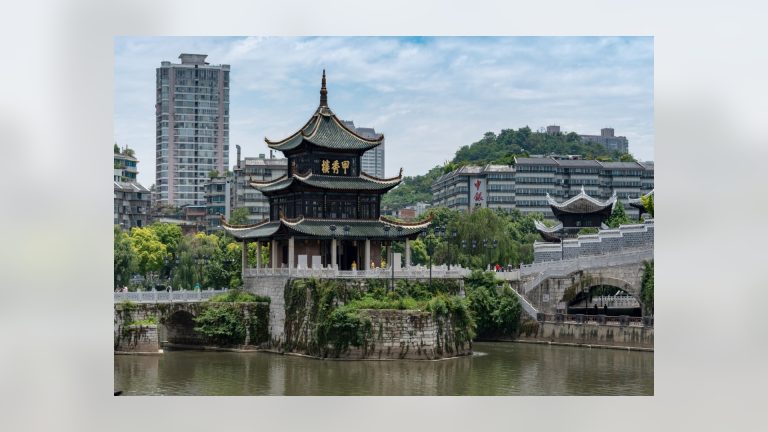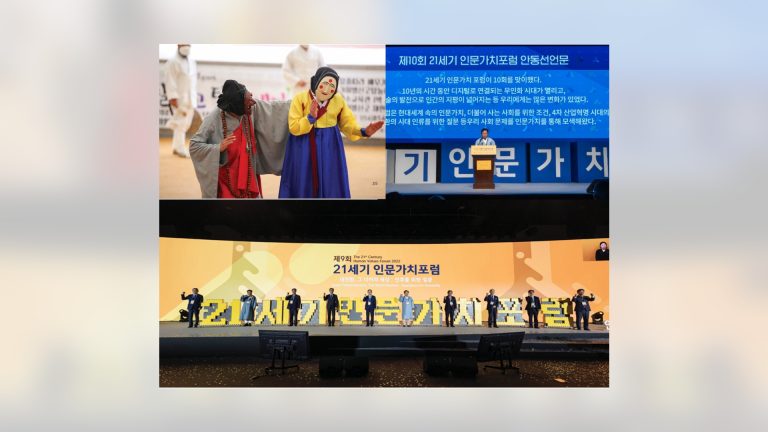September 19-22, 2022 (Brisbane) | UCLG ASPAC led the coordination of local authorities, ensured their voices were amplified, and space was created for learning in the Asia-Pacific Ministerial Conference for Disaster Risk Reduction (APMCDRR) 2022 through 1) a UN Pre-conference Stakeholders Meeting Session: “Local Authorities Stakeholder: Towards Inclusive, Safe, Resilient, and Sustainable Cities” which produced the outcome document (Statement of Action); and 2) organisation of a Learning Lab: The Cost of Doing Nothing – Scenarios for Investing in Resilience.
UN Pre-conference Stakeholders for Local Authorities Stakeholder
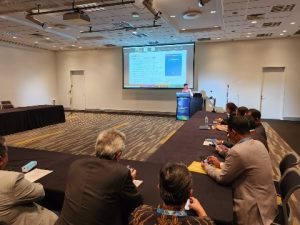
Through the framework of the Asia-Pacific Local Governments Coordinating Body (APLG), UCLG ASPAC led the coordination and feedback consolidation from various local governments associations such as MAB, LGAQ, ICLEI, C40, CLGF, AIILSG, Citynet, UN and other Agencies such as UN-HABITAT, UNESCAP, UNDP and IFRC.
The welcome remarks were delivered by Dr. Bernadia Irawati Tjandradewi (Secretary General, UCLG ASPAC) highlighted the importance of this session to help facilitate and further strengthen, sharpen, and ensure the quality of the development of the statement.
Mr. Mark Jamieson (Mayor of Sunshine Coast Council, President of the Local Government Association of Queensland, Australia), through his opening remarks, highlighted key points of (i) building back better; (ii) acknowledging the needs of local and indigenous communities; (iii) better preparing the vulnerable communities; and (iv) secure funding and investment for DRR.
Further, the presentation from local authorities was presented by Ms. Stephany Uy-Tan (Councillor of the City of Catbalogan) inspired the participants:
- Encourage community involvement to increase their awareness and understanding of the presence of threats and risk (participatory process);
- Appoint team or personnel and involve other stakeholders to assist the community in the program implementation;
- Conduct appropriation and allocation of funds to plans, programmes, and activities;
- Ensure those severely affected by these hazards received appropriate assistance from the shelter, livelihood, and other opportunities necessary for building back better.
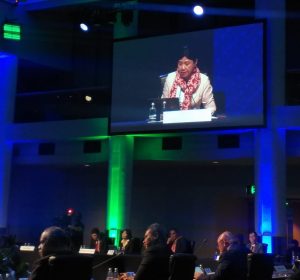
Learning Lab: The Cost of Doing Nothing – Scenarios for Investing in Resilience
On 22 September, UCLG ASPAC organised a Learning Lab participated by 25 participants from various local governments and organisations attending the APMCDRR 2022. This Learning Lab was a 90-minute session designed with an interactive method applying the first Resilient Learning Module, jointly developed, and launched by UCLG, UNDRR and UN-HABITAT in 2020 to support the localisation of the Sendai Framework for Disaster Risk Reduction and cover the Fundamentals of Resilient Governance and Development for Local and Regional Governments.
The session included the presentation of an introduction on the role of Local Government in DRR and the Sendai Framework alignment process at the local level. Further, it invited participants to reflect on the challenge of the mismatch between revenue, expenditures, and financial aspect of developing resilient infrastructure and implementing DRR action plans.
Councillor Stephany Uy-Tan of Catbalogan City shared the constant risk of disaster for Catbalogan, including flooding, landslides, and typhoons. Many actions had been done to help Catbalogan prepare for the disasters, aligned with the Sendai Framework for Disaster Risk Reduction, such as “engagement from all of society” to reduce risk (representing greater inclusion and empowerment of individuals and local communities to take action to reduce their own vulnerability and raise risk awareness) and Statement of Action of Local Authorities under the AMCDRR 2018 (wherein Catbalogan City has committed to these actions based on the statement of actions and the integration to the local programs and activities in building the culture of resilience in our locality). She further mentioned challenges still faced in making the efforts including limited capacity to respond to a pandemic; the need to adjust and redirect the programmes; and the unwillingness of some constituents to help in DRR efforts.
The second session was designed with one exercise called ‘Futurilities’ Role Play and divided the participants into two groups. Participants were asked to do role-playing as Mayors and heads of Departments of the City to do the decision-making process, in a resilient way. Participant representative was chosen to share the experience including some challenges, successes, and failures during the process of training. By the end of the learning lab, participants understood that it is important to put different perspectives into the decision-making process, and resilience is one of them.
The APMCDRR 2022 was organised by United Nations Office for Disaster Risk Reduction (UNDRR) and hosted by the Government of Australia in Brisbane. It enabled the strengthening of cooperation and actions to accelerate risk reduction, and boost resilience building, and prevention activities focused on saving lives and livelihoods. Those key areas constituted the 2022 APMCDRR’s three core pillars: (i) Investing in Resilience and Preparedness; (ii) Shock-proofed Infrastructure and Systems; and (iii) Resilient Communities.








